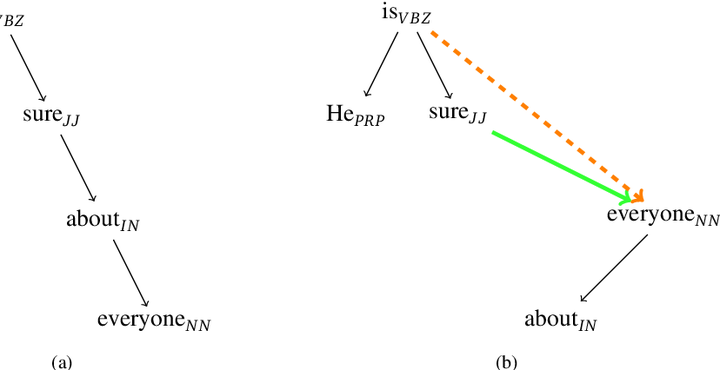
Abstract
There is often more than one way to represent syntactic structures, even within a given formalism. Selecting one representation over another may affect parsing performance. Therefore, selecting between alternative syntactic representations (henceforth, syntactic selection) is an essential step in designing an annotation scheme. We present a methodology for syntactic selection and apply it to six central dependency structures. Our methodology compares pairs of annotation schemes that differ in the annotation of a single structure. It selects the more learnable scheme, namely the one that can be better learned using statistical parsers. We find that in three of the structures, one annotation is unequivocally better than the alternatives. Our results are consistent over various settings involving five parsers and two definitions of learnability. Furthermore, we show that the learnability gains incurred by our selections are both considerable (error reductions of up to 19.8%) and additive. The contribution of this work is in demonstrating that syntactic selection has a substantial and predictable effect on parsing performance, and showing that this effect can be effectively used in designing syntactic annotation schemes.